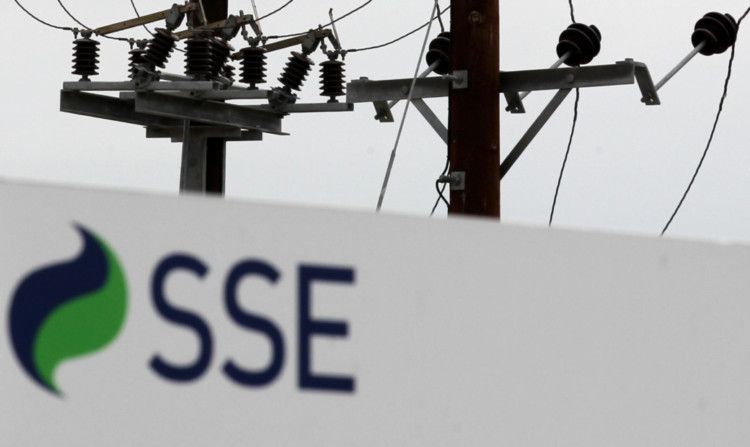Energy giant SSE posted adjusted pre-tax profits of £1.55 billion yesterday but warned that it would struggle to recover from a 32% fall in returns from its household supply arm following a self-imposed price freeze.
The Perth-based group said operating profits in the retail division fell by almost a third to £246 million thanks to a mild winter and the rising wholesale cost of gas.
But the company’s pledge not to increase gas and electricity tariffs until 2016, announced just a day before regulator Ofgem revealed plans to refer the energy sector for a full-scale competition probe, is expected to hamper the performance of the domestic business.
Chief executive Alistair Phillips-Davies said the pledge had been “hugely popular”, but admitted it would mean the company taking “a hit on retail profits over the next couple of years”.
SSE hiked tariffs by an inflation-busting 8.2% in November, and like other companies blamed the rise on higher costs of buying and distributing wholesale energy as well as Government levies on bills to pay for energy efficiency policies.
Westminster later announced a move to roll back the levies, following a public outcry over the price hikes and a campaign over the ‘green taxes’ by energy firms.
SSE yesterday said its overall earnings for the year to March were boosted by its production business, where operating profits rose 24.8% to £634.6m, and its energy distribution arm, which saw an increase of 9.3% to £955.4m.
At £1.58bn, capital investment during the 12-month period exceeded the headline profit figure but the company was also forced to record a string of expensive write-downs, which saw reported pre-tax profit rise by 0.7% to £525.3m on total revenues of more than £30bn.
Nonetheless, SSE increased the full-year dividend it will pay to shareholders by 3% to 86.7p per share, and recommitted itself to yearly increases.
“SSE is listening to and helping customers with the longest ever household energy price freeze in the Great Britain market; we have well-defined plans for net investment of around £5.5bn over the next four years in maintaining, upgrading and building the electricity assets customers depend on; and we are committed to giving investors a fair return through an annual dividend that at least keeps pace with inflation,” said company chairman Lord Smith of Kelvin.
“The issues facing the energy sector are very challenging.
“Nevertheless, customers, investors, regulators, politicians and SSE all want the same thing: an energy market that works for customers, and is trusted and seen to do so.”
Exceptional charges totalled almost £750m, including £272.6m related to the company’s March announcement that it would scale back its commitment to offshore wind power and review onshore developments.
SSE’s portfolio of street-lighting contracts, a telecoms and data centre and gas connections activity will be disposed of, too.
The power firm also impaired the value of its power stations at Fiddler’s Ferry in Cheshire and Ferrybridge in West Yorkshire, because of “increasing uncertainty” over the viability of coal-fired generation.
Concerns over market reform, including the creation of a capacity market, and ongoing issues with gas storage contributed to a further £428.2m in writedowns.
A total of 600 staff from a workforce of almost 20,000 have successfully applied for early voluntary redundancy, exceeding the 500 target SSE had proposed.
Shares fell 8p to 1,560p.
